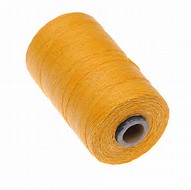Taking Rest Days
I’ve had a few students recently bring up a topic that I found interesting. They were having trouble with stamina when playing the full instrument. I asked, “How often are you playing the actual pipes?” I got replies stating they’ve consistently played pipes the last 5 or 6 days in a row, which can actually be harmful to your stamina goals.
No wonder they showed up for a lesson, or band practice, and got the “raspberries” after only a few minutes of playing! When it comes to building up stamina, either as a beginner or an experienced player, it is definitely important to incorporate rest days into your playing schedule. One thing I tell beginner/intermediate players is to not play the day before band practice. That way, they have lots of gas in the tank, so to speak, to play for a long time at band. As most experienced pipers know, we often play the pipes much more at band than we would on our own at home. It’s similar to long-distance running. Runners don’t try to run a marathon every single day, they have to have rest days so they can run longer and longer.
So if you are thinking that playing every day will make you stronger, don’t. Even the most experienced pipers incorporate rest days into their schedules.
- Author:Palmer Shonk
- Tags: No tags
- Comments:0




